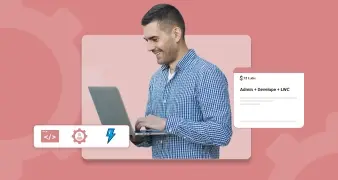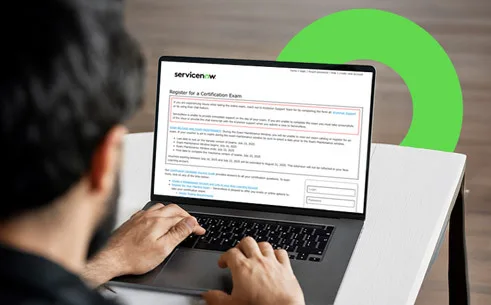For Beginners & Experienced Learners
Salesforce Developer + AI Course
Build your rewarding career with our Salesforce Developer Course! This course is well-structured to prepare you for the Salesforce Developer Certification, which includes Platform App Builder I & II. Our Salesforce Developer Training helps you master LWC and API integrations with hands-on projects focused on building useful skills. The expertly crafted curriculum includes topics like SOSL, SOQL, APEX Trigger, and Apex Testing to help you build familiarity with real-world challenges. Get real-time support with our one-on-one doubt sessions and stay updated with lifetime access to study material. Enroll today and unlock endless possibilities in Salesforce development!
3900+ Ratings
Hours of Session
Learners

OUR STUDENTS WORKING AT
From startup ventures to Fortune 500 companies, our students have secured positions at numerous esteemed organizations. Here are a few where they are leading with an impact.
Average Salary
Source: Glassdoor
Exclusive Perks for Future-Ready Salesforce Developers
Guaranteed Salesforce Developer Certification*
Become Industry-Ready in Just 90 Hours
Access to Alumni Network for mentorship ready
1:1 Mock interviews
Lifetime Access to the study materials
Live Doubt Sessions

More Than Just Learning
Help you with resume building and career guidance
Structured Curriculum curated by experienced trainers
Work on Scenario based business problems

Hands On Project
Law Firm Management
Real-Estate Management

Your Roadmap to Accelerated Career Growth
Start your career as a Salesforce Developer & open doors to become:
- ✓ Salesforce Developer
- ✓ Salesforce Technical Consultant
- ✓ Salesforce Cloud Specialist
- ✓ Salesforce Technical Architect
The Results
10 LPA
Average CTC40x
Return on Investment95%
Students bag dream tech jobsSalesforce Developer Course Curriculum
Our Salesforce Developer Training Course offers a unique curriculum designed to provide you with the logical and programming skills necessary to pass certification exams and thrive in the fast-paced world of Salesforce development. We'll be with you every step of the way, whether you're starting fresh or taking your career to the next level.
Explore the full details of our Salesforce Developer training course below:
-
1. Basic of AI AI
- Introduction to Artificial Intelligence
- Machine Learning Principles
- Principles of AI
-
2. AI in Salesforce AI
- Overview of Salesforce AI architecture and tools
- Introduction to Salesforce Einstein AI
- The Einstein 1 Platform
-
3. Salesforce Agentforce Specialist Integration AI
- The Fundamentals of AI
- AI Capabilities in CRM
- Ethical Considerations of AI
- Data for AI
- Einstein prediction Builder
- Einstein Lead or opportunity Scoring
- Overview of Prompt builder and einstein copilot
-
4. Apex Basics
- Introduction to Apex
- Apex Environments
- Apex Variables
- Literals
- Apex Datatypes
- sObjects
- Collections
- Operators
-
5. Apex OOPS Concepts
- Classes
- Methods
- Access Modifiers
- Constructors
- Inheritance
- Abstract Class
- Interface
-
6. Logic Control and Looping Statements
- if Else Statement
- Switch Case Statement
- Loops
-
7. SOSL & SOQL
- Introduction to SOQL
- SOQL Keywords
- SOQL Aggregate Function
- SOQL Variable Binding
- SOQL For Loops
- Relationship Queries
- MultiLevel Relationship
- Dynamic SOQL
- Introduction to SOSL
- SOSL Keywords
- Dynamic SOSL
-
8. Apex DML and Database Class methods
- Introduction to DML Statements
- DML Statements
- Introduction to Database Class Methods
- Database Result Class
- Transaction control and Rollback
- Database Lead Conversion Methods
-
9. Exception Handling
- Introduction to Exception Handling
- System Defined Exceptions
- Introduction to Database Class Methods
- Database Result Class
- Transaction control and Rollback
- Database Lead Conversion Methods
-
10. Apex Trigger
- Introduction to Trigger
- Types of Trigger
- Trigger Events
- Order of Executions
- Trigger Helper Class Pattern
- Bulkified Triggers
- Recursion Handling in Triggers
- Best Practices for Trigger
- Trigger Exceptions
-
11. Governor Limits & Batch Apex Class
- Introduction to Governor Limits
- Types of Governor Limits
- Introduction to Batch Apex
- Purpose of stateful interface
- Scheduling the batch class using UI/programmatically
- Monitoring Batch Jobs
- Queueable
- Future Method
-
12. Apex Testing
- Introduction to Testing
- Apex unit tests and test classes
- Creating and Managing Test Data
- Test Setup Method
- System.runAs() Method
- Trigger Testing
-
13. API
- Introduction to API
- REST API
- Salesforce Workbench
-
14. LWC (Lighting Web Component)
- Basic Introduction to HTML,CSS,JS
- Introduction to LWC
- Setup Dev Environment
- LWC Fundamentals
- CSS (SLDS) and Component Library
- LWC Lifecycle Hooks
- Component Communication Using Events
- Lightning Data Service
- NavigationMixIn
- LWC Testing
-
15. Visualforce
- Introduction to Visualforce
- Basic Tags in VF Page
- Type of Controllers
- Using Static Resource in VF Page
- Best Practices for VF Page
-
16. Deployment Process
- Application Development Life Cycle
- Sandboxes
- Change Sets
- ANT Migration Tool
- Package Creation
- Best Practices for Deployment
Upcoming Salesforce Classes
Join us on our next transformational learning experience where you’ll connect with like-minded individuals and unlock new career opportunities. Don’t miss out—secure your spot today and start your Salesforce Training!
Frequently Asked Questions
Salesforce is the world’s leading Customer Relationship Management (CRM) platform, and it is projected to create around 11.6 million jobs by 2028. The demand for skilled Salesforce developers is increasing across industries, and they are among the highest-paid tech professionals globally. Learning Salesforce development equips you with skills to build and customize applications as a Salesforce Developer and earn high packages in this booming industry. You can leverage a thriving ecosystem with up-and-coming innovations in tech and AI to build a successful career.
While there are no prerequisites, knowing the basics of programming languages like Java, C++, or JavaScript would be helpful. If you have prior knowledge of Salesforce as an admin, it’s a bonus, but we cover foundational concepts to get you up to speed. Even if you’re a beginner, our course will help you build the skills needed to succeed as a Salesforce Developer.
Yes! Our Salesforce Developer training at S2 Labs is designed to align with the official Salesforce Platform Developer I and Platform Developer II certifications. More than 50,000 of our students have successfully aced these certifications after training. Throughout the course, you’ll gain in-depth knowledge of Salesforce development principles and work through exam-style questions and mock tests. By the end of the course, you’ll be well-prepared to tackle the certification exams confidently.
At S2 Labs, we’re dedicated to equipping you with industry-relevant skills and practical experience to thrive as a Salesforce Developer. Here’s why we stand out:
- Comprehensive Curriculum: Our training program covers everything from the basics of Salesforce and Apex coding to advanced topics like Lightning Web Components (LWC) and integration.
- Hands-On Projects: You’ll work on real-world projects that mimic challenges faced by developers in the industry.
- Expert Trainers: Learn from certified Salesforce professionals with years of development and implementation experience.
- Personalized Mentorship: Get one-on-one guidance to strengthen your weak areas and build confidence.
- Job Assistance: Benefit from resume-building workshops, interview preparation, and job placement support to launch your Salesforce career.
We encourage learners to actively ask questions during live classes, where instructors ensure all doubts are addressed before the session concludes. However, if you still need further assistance, regular doubt sessions will be conducted to help you understand concepts. Besides these, we give you access to a community of experts and fellow students where you can ask your queries even after the training period ends.

Manan Sharma
Success Stories
At the heart of what we do is our passion for empowering our students to succeed in the ever-changing world of IT ecosystem. Don't just take our word for it, let us share a few stories of our successful alumni with you.
Find Your Perfect Learning Path
Start your Salesforce journey with our diverse training offerings! Choose self-paced course to learn at your own pace or join live classes for interactive guidance from experts.

How Our People Feel About Us

Based on 500+ reviews
Contact Us
We are just a message away, literally!




























































